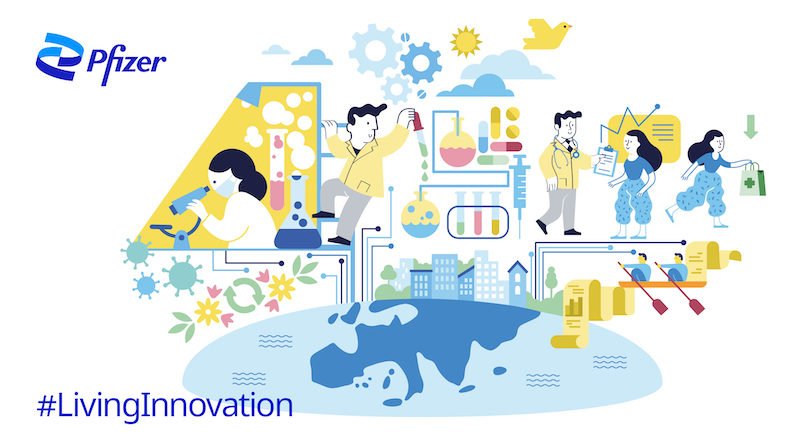
European Health Union: When political imperatives risk getting in the way of good policy
“A Union that strives for more”. This is how Ursula von der Leyen, then candidate for the Presidency of the European Commission, summarized her agenda for Europe back in 2019.1 With issues such as migration, climate change and the digital transition making the headlines, few in the Brussels circles had imagined that ‘striving for more’ would expand to healthcare policy less than a year later.
The ‘European Health Union’ agenda launched in November 2020 is an ambitious, albeit politically inevitable, response to the wounds left by the COVID-19 pandemic. After a fragmented response of EU Member States in the first wave, increasing EU powers on health policy, once close to unthinkable, became a self-evident necessity and political urgency.
German Chancellor Merkel has stated that she would even support changing the Treaties if necessary to make this happen.2
A more ‘interventionalist’ EU approach is also articulated in the Pharmaceutical Strategy for Europe. Under pressure from Member States to improve access, affordability and availability of medicines across Europe, the Commission is acutely aware that its current policy toolbox is limited in this area. ‘Striving for more’ has translated into ambitious plans to revise the incentives framework for pharmaceuticals (e.g. orphan and paediatric medicines) and the general pharmaceutical legislation.3
Although these reforms were in the EU’s pipeline before COVID-19, one can argue that the pandemic strengthened EU policymakers’ perception that public sector intervention be more and more needed, notably in areas where the private sector is perceived as not able or willing to deliver.
Almost paradoxically, the Commission is now facing the challenge of political imperatives getting in the way of good policy.
One telling example is the export transparency and authorisation mechanism for COVID-19 vaccines rushed through in late January.4 Movement of goods and supply across borders is critical to the pharmaceutical industry, including Pfizer, and the patients we serve. Since the Regulation’s inception, it has caused a significant administrative burden and uncertainty on our tightly calibrated global supply chains. There is no one single fix for complex issues such as vaccines development and distribution. The Commission’s Task Force on Vaccines Scale Up, via a solid dialogue with the private sector, should enable a better understanding of key needs and enablers across the supply chain.
Another example relates to access and availability of medicines across Europe. In an attempt to address the increasing inequalities across Europe in this area, the Commission is exploring legal obligations for companies to make their products available in all 27 Member States within a certain timeframe after marketing authorisation. However, the root causes of access delays and unavailability, are multi-faceted and lie mainly outside EU legislation.5 Such a policy would not improve access for patients and could instead undermine the EU’s stated ambition to be a world leader in pharmaceutical innovation.
The establishment of a High-Level Forum for Better Access to Innovation would be a much-needed first step to facilitate multi-stakeholder discussions to identify the sources of the problem and tackle them together, at the most appropriate level.6
One area where we believe the EU has the potential to be a world leader is the fight against antimicrobial resistance (AMR). Differently from COVID-19, this ‘silent pandemic’ has been on the political agenda of the EU for years already, driven by the major public health need for a more substantial antimicrobial R&D pipeline.7 To complement ongoing public-private partnerships like the Innovative Medicines Initiative (IMI) and other ‘push’ initiatives aimed at de-risking basic research, industry and experts have been calling for ‘pull’ incentives to significantly increase R&D investment.8 In July 2020, the pharmaceutical industry launched the AMR Action Fund, an unprecedented 1 billion USD commitment to bring 2-4 new antibiotics to patients by 2030.9 This initiative, however, is only a temporary fix and will not drive the required ecosystem change unless public authorities including the EU create the conditions that enable sustainable investment in antimicrobial R&D.
The proposals in the EU Pharmaceutical Strategy on AMR pull incentives are therefore encouraging. However, it will be crucial for the EU to open a frank, trust-based dialogue with the pharmaceutical industry to identify what incentives would be most impactful. Notably, in alignment with the principles highlighted in the IP PACT,10 we would be keen to discuss with EU policy-makers how novel intellectual property mechanisms such as transferable exclusivity extensions could help create the conditions for sustained private investment against AMR to take place.
In conclusion, the COVID-19 crisis and the ensuing ‘European Health Union’ agenda have triggered a lively discussion on what the role of the EU could and should be in health and pharmaceutical policy.
While there is no easy answer to this complex question, good policy does need to be based on constructive engagement with all stakeholders, including the pharmaceutical industry, to identify barriers and solutions. We at Pfizer, building on our leadership in the context of the COVID-19 pandemic, stand ready to continue partnering with the EU institutions in pursuit of these common objectives.
_________________________________________________________________________________
1 https://ec.europa.eu/info/sites/default/files/political-guidelines-next-commission_en_0.pdf
2 https://euobserver.com/democracy/151627
3 See here and here for more information
4 https://ec.europa.eu/commission/presscorner/detail/en/ip_21_307
5
8 https://www.efpia.eu/media/219769/joint-ebe-efpia-and-ve-statement-on-amr-1.pdf




